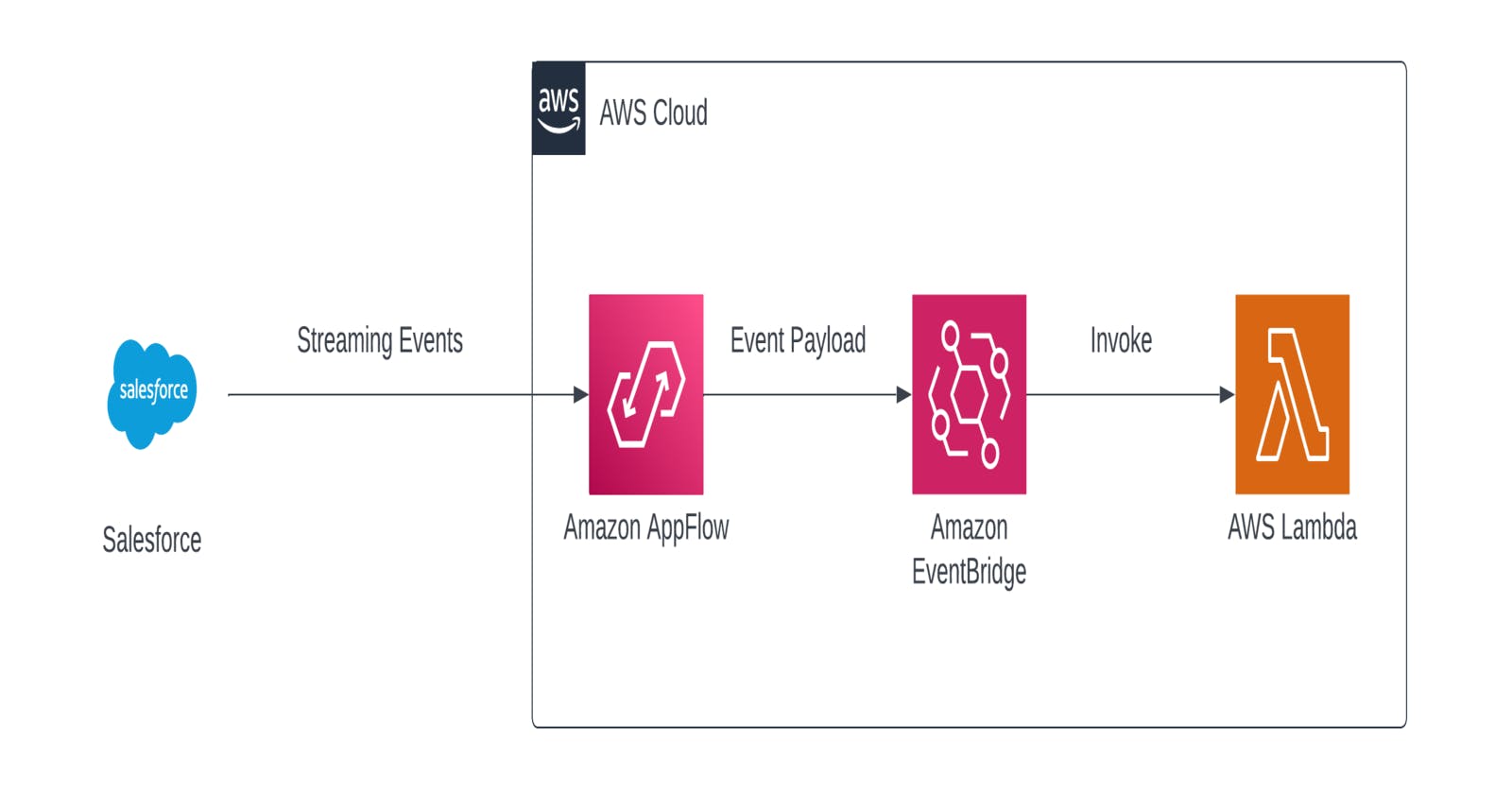Boosting Business Connectivity: Salesforce Platform Events, Amazon AppFlow, and AWS Lambda
Introduction
Within the ever-evolving world of cloud computing and customer relationship management, Amazon Web Services (AWS) and Salesforce have emerged as prominent figures. Their innovative tools, Amazon AppFlow and Salesforce Platform Events, can transform the way businesses manage data. In this thoughtful exploration, we will uncover the advantages of integrating these two influential platforms and examine how AWS Lambda functions through EventBridge can elevate this integration even further.
Understanding Amazon AppFlow, Salesforce Platform Events, EventBridge and Lamda
Amazon AppFlow
Amazon AppFlow is a fully managed service by AWS, designed to facilitate secure and efficient data transfer between AWS services and SaaS applications. It's tailored for ease of use, allowing even those without deep technical expertise to set up and manage data flows.
Salesforce Platform Events
Salesforce Platform Events play a vital role in Salesforce's event-driven architecture by fostering smooth communication both within and beyond the Salesforce ecosystem. These events are essential for initiating timely and appropriate actions in response to data alterations or manually activated events.
Amazon EventBridge
Amazon EventBridge is a serverless event bus service that facilitates the building of event-driven applications within the AWS ecosystem. It acts as a central hub to collect and deliver data from your own apps, SaaS applications, and AWS services. EventBridge makes it easy to set up event-driven workflows without the need for managing underlying infrastructure. By enabling applications to communicate through events, EventBridge helps in creating highly scalable and loosely coupled architectures. It seamlessly routes events between different AWS services, such as from Amazon AppFlow to AWS Lambda, triggering automated actions and enabling real-time application responsiveness.
AWS Lambda
AWS Lambda is a compute service that lets you run code without provisioning or managing servers. It executes your code only when needed and scales automatically, from a few requests per day to thousands per second. With Lambda, you can run code for virtually any type of application or backend service with zero administration. Just upload your code as Lambda functions, and the service handles everything required to run and scale the execution with high availability. You can set up your code to automatically trigger from other AWS services or call it directly from any web or mobile app. Lambda functions can be triggered by events from various AWS services like Amazon EventBridge, making it a powerful tool for processing data streams and responding to system changes in real time.
Key Advantages of Integration
1. Real-time Data Syncing
Integrating AppFlow with Salesforce ensures that any data update is immediately reflected across platforms. This synchronization is pivotal for maintaining up-to-date information and making informed decisions.
2. Enhanced Data Security
Data transfer through Amazon AppFlow adheres to AWS’s stringent security protocols, ensuring that sensitive customer information is handled with utmost security during transit between Salesforce and AWS.
3. Scalability and Efficiency
This integration excels in handling large volumes of data efficiently, enabling businesses to scale their operations without worrying about the complexity of data transfer.
4. Improved Customer Experience
The real-time nature of this integration allows businesses to provide personalized experiences to customers by leveraging up-to-date data for tailored services.
Expanding the Integration: AWS Lambda and EventBridge
After capturing data through Amazon AppFlow, the integration can be extended to pass this data to AWS Lambda functions via Amazon EventBridge for advanced processing. This extension offers several additional advantages:
5. Automated Data Processing
AWS Lambda can automatically process data received from Salesforce events. This means businesses can set up custom data handling procedures, such as data transformation, filtering, or aggregation, without manual intervention.
6. Enhanced Customization and Flexibility
Lambda functions provide the flexibility to write custom code for specific data processing needs, making it possible to tailor the data handling to fit unique business requirements.
7. Cost-Effective and Scalable Architecture
AWS Lambda functions are event-driven and scale automatically, ensuring that you pay only for the compute time you consume. This makes it a cost-effective solution for businesses of all sizes.
8. Simplified Workflow Management
By leveraging AWS Lambda with EventBridge, businesses can simplify their workflow management. This integration allows for setting up complex workflows that react to specific data changes in Salesforce, automating various business processes.
Implementing the Integration
Now, let us explore the process of implementing the powerful Amazon AppFlow, EventBridge, and Lambda integration step by step.
Note: Make sure you region is same for all services you are using
Create a Amazon AppFlow:
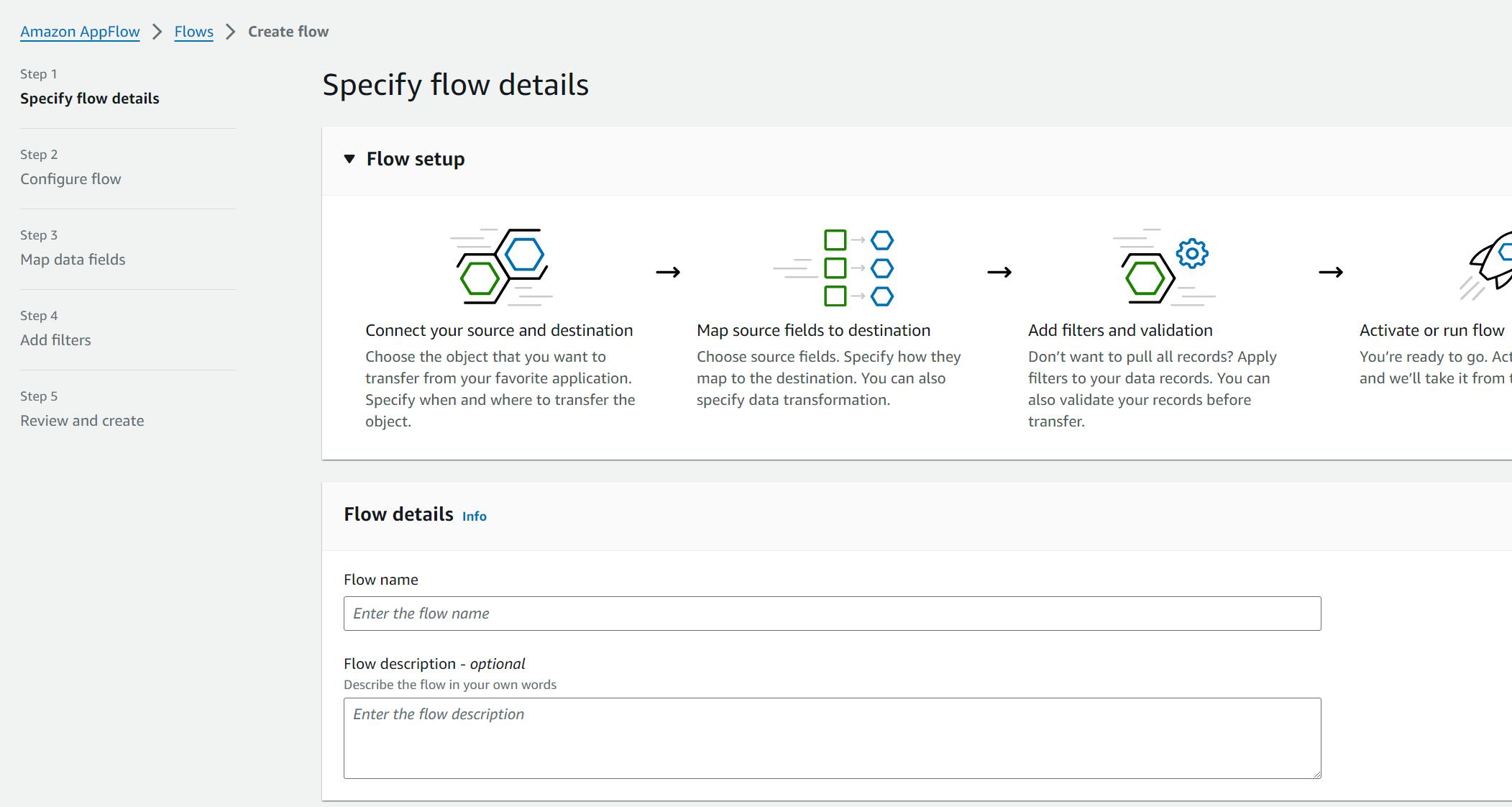
In the next screen Select source name as "Salesforce" and create a connection with your org. In destination select "Amazon EventBridge". This will create a Partner Event Source automatically.
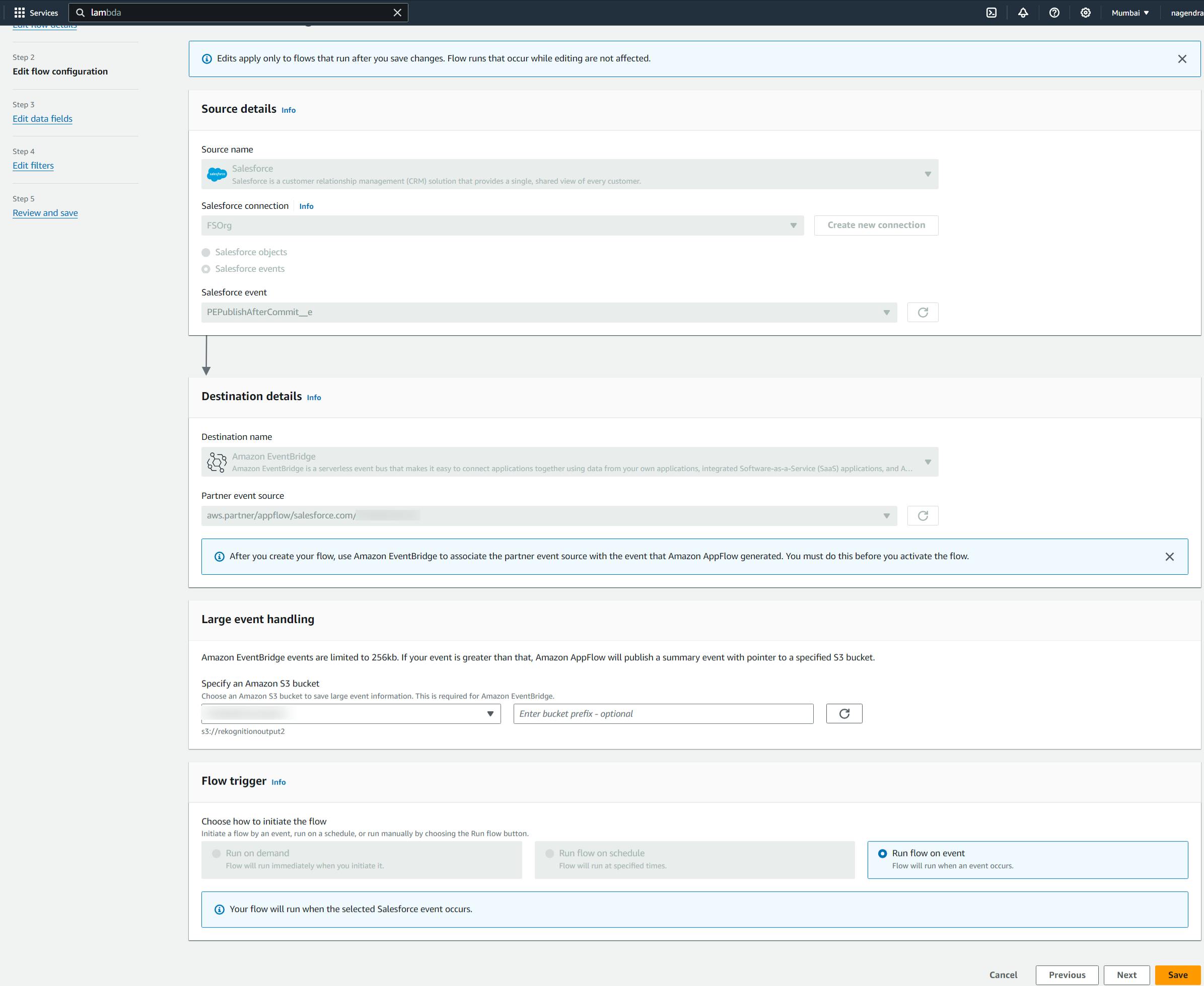
In the next screen you can map fields, I didn't change the mapping and select all.
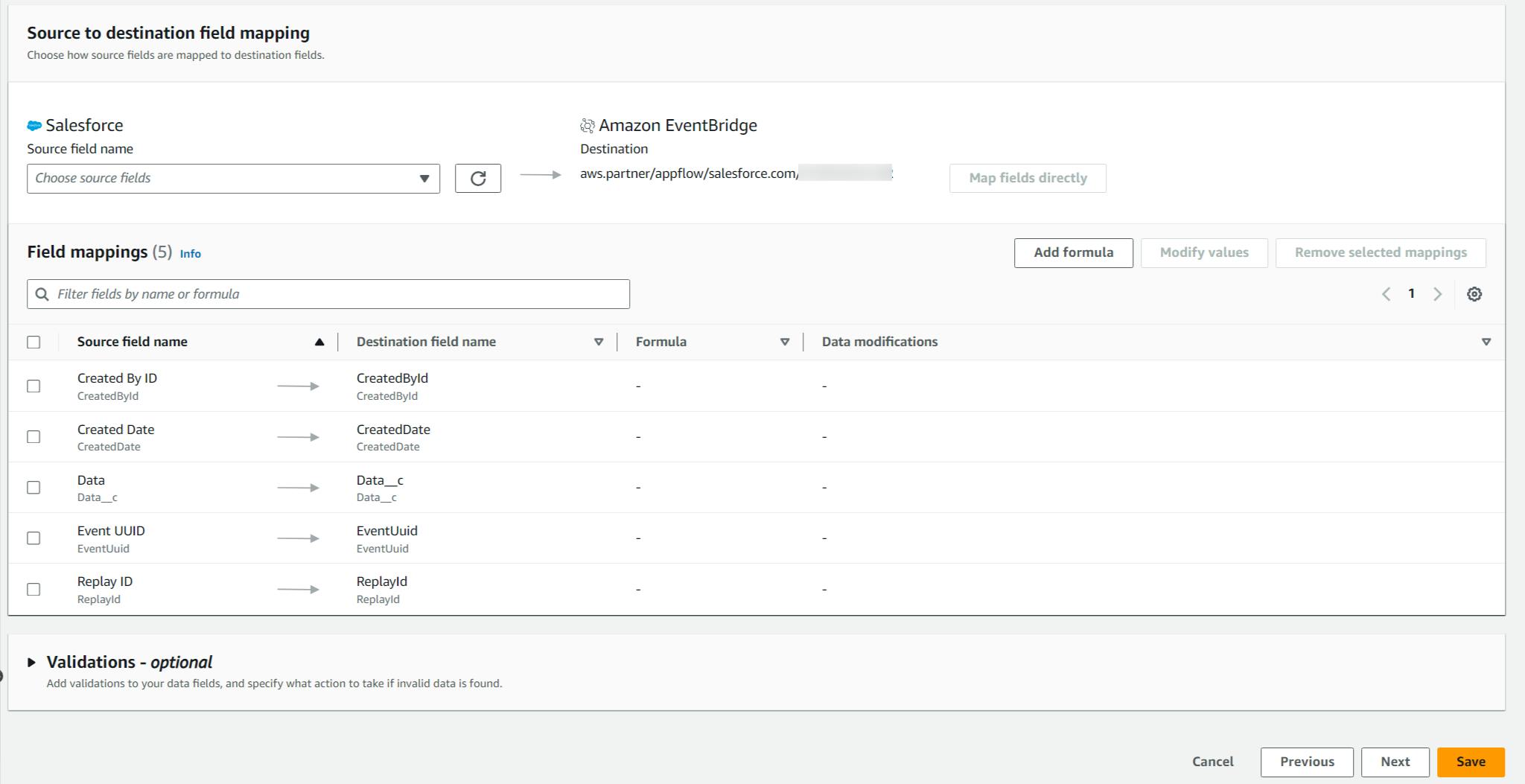
Now press next and "Review and Save configuration"
Now as directed on screen, don't active the AppFlow now. We need to use Amazon EventBridge to associate the partner event source with the event that Amazon AppFlow generated.
Go to Amazon EventBridge (Make sure you region is same for all services you are using). Here at top you will be seeing a new Partner event sources which was created by AppFlow. Select that and click "Associate with event bus"
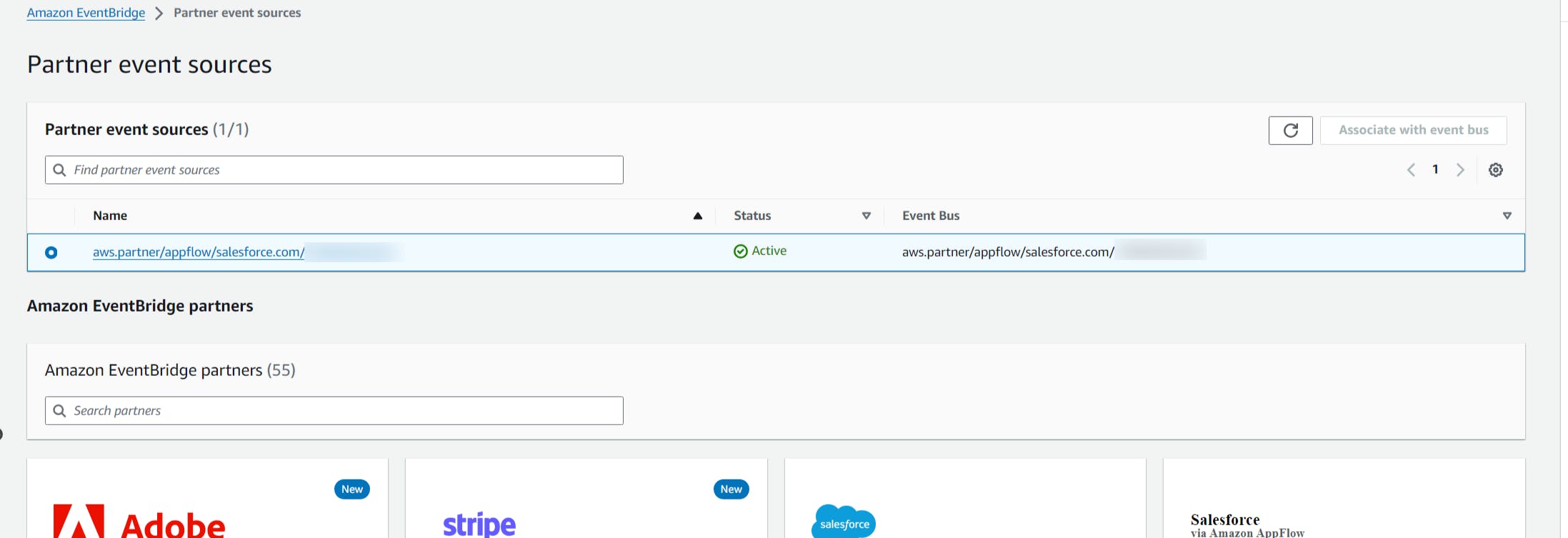
Now come back to Amazon AppFlow and activate the Flow.
Let's create a simple Lambda function now. Search for AWS Lambda and click create function. Give a name and click "Create Function". I used NodeJs as runtime environment, you can choose your favourite one.
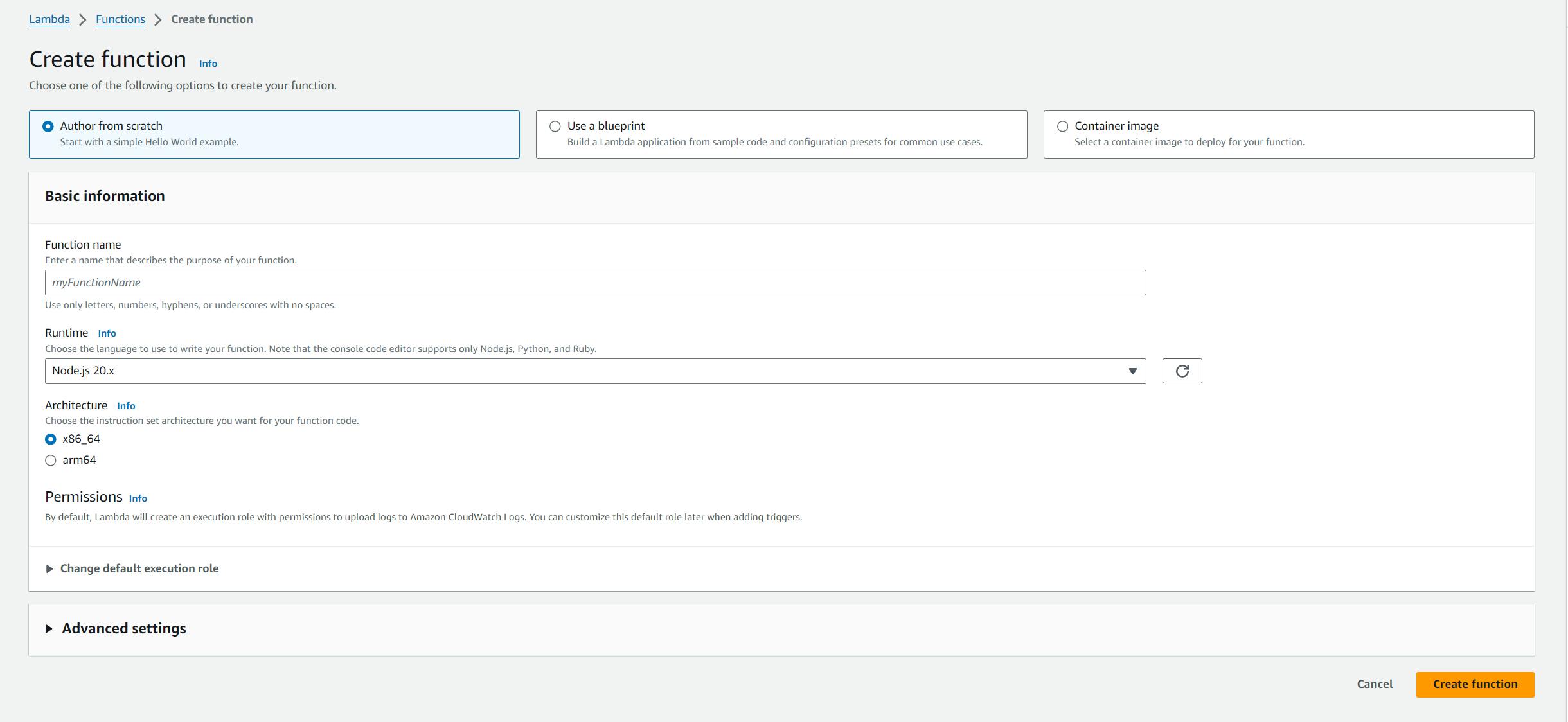
Go to function, scroll to below and select "Code" tab. The code would be :
export const handler = async (event) => {
// TODO implement
const response = {
statusCode: 200,
body: JSON.stringify('Hello from Lambda!'),
};
return response;
};
You need to update it as below, so that we can view the events being received, and click "Deploy"
export const handler = async (event) => {
console.log("Event received from salesforce -> "+JSON.stringify(event));
};
As out AWS Lambda is now ready to process events, let's create a rule in Eventbridge so that we can feed events to AWS Lambda. Go to EventBridge and select "Rules" from the left side panel, select the correct Event Bus and click "Create Rule"
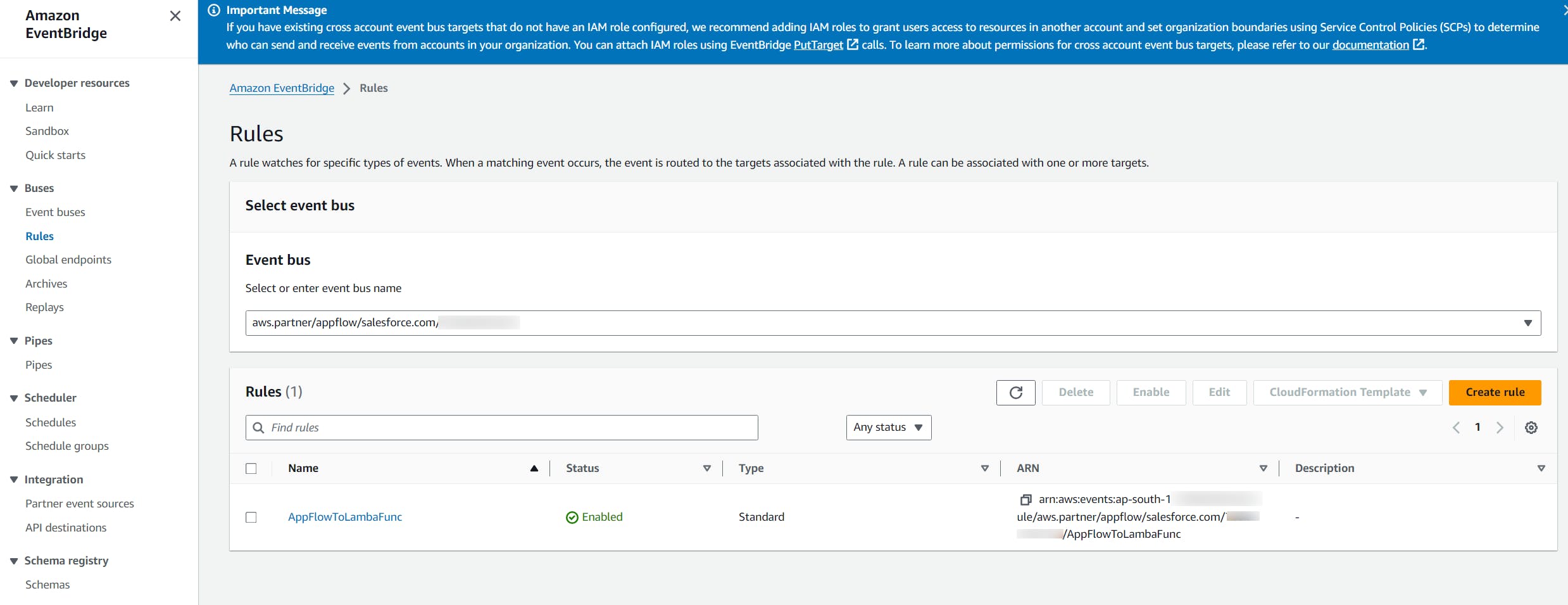
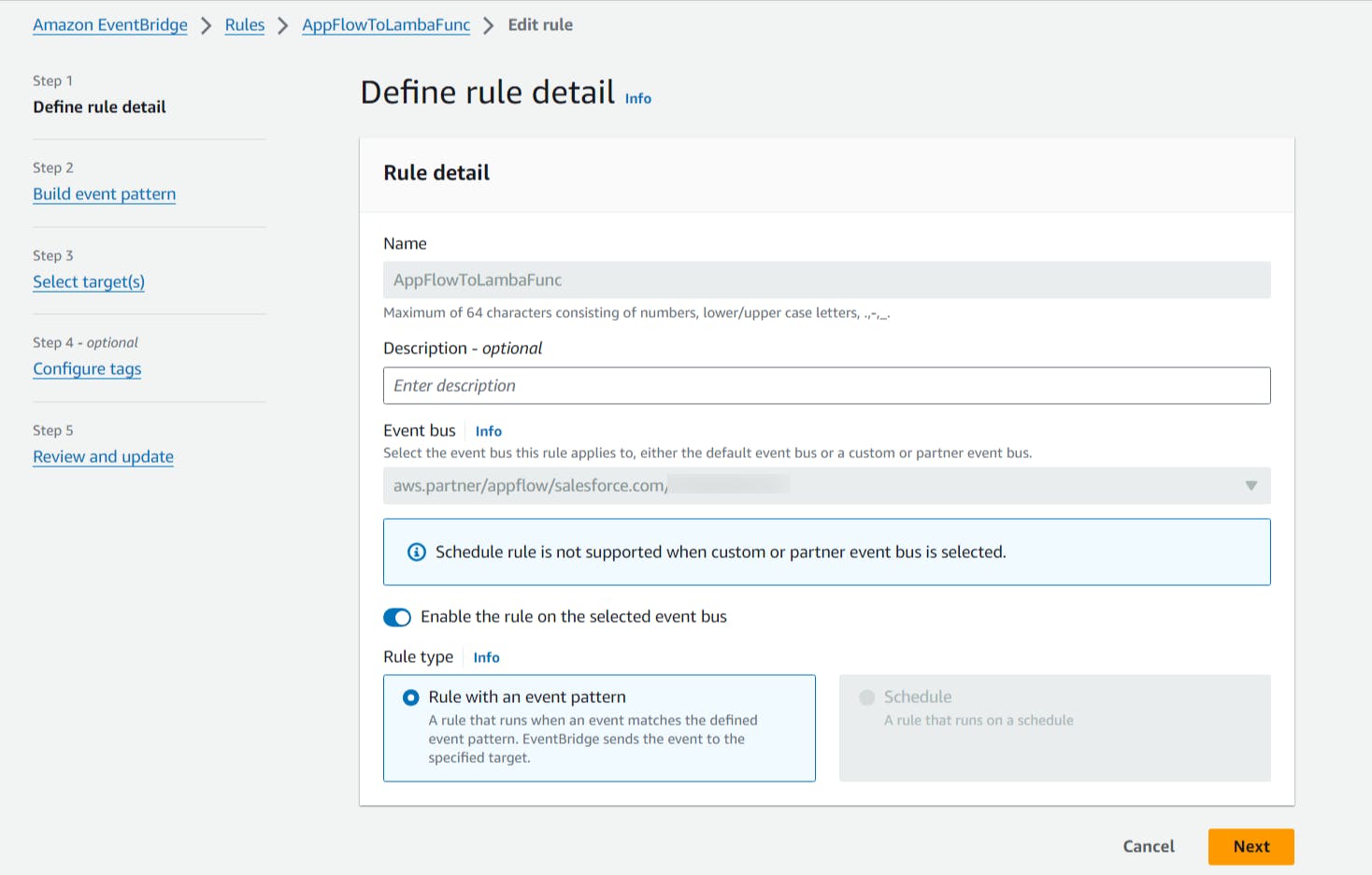
Enter a name, in the next configuration screen, select "AWS Events or EventBridge partner events". Scroll to bottom and select "Use pattern form" and select as shown below
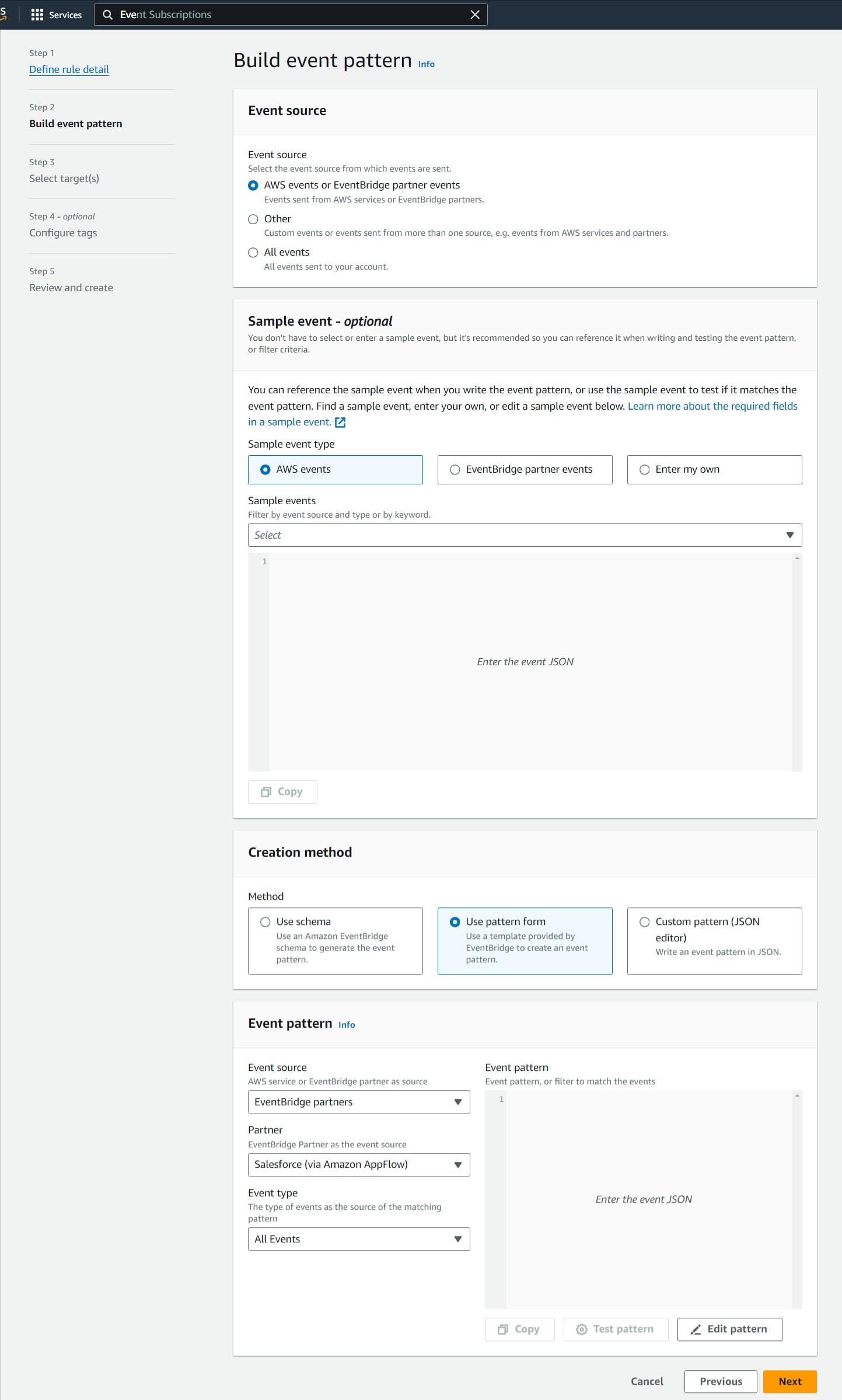
On the next Target screen select "AWS Service" and select "Lambda function" and select the Lambda function created above. Click next and review and create the rule.
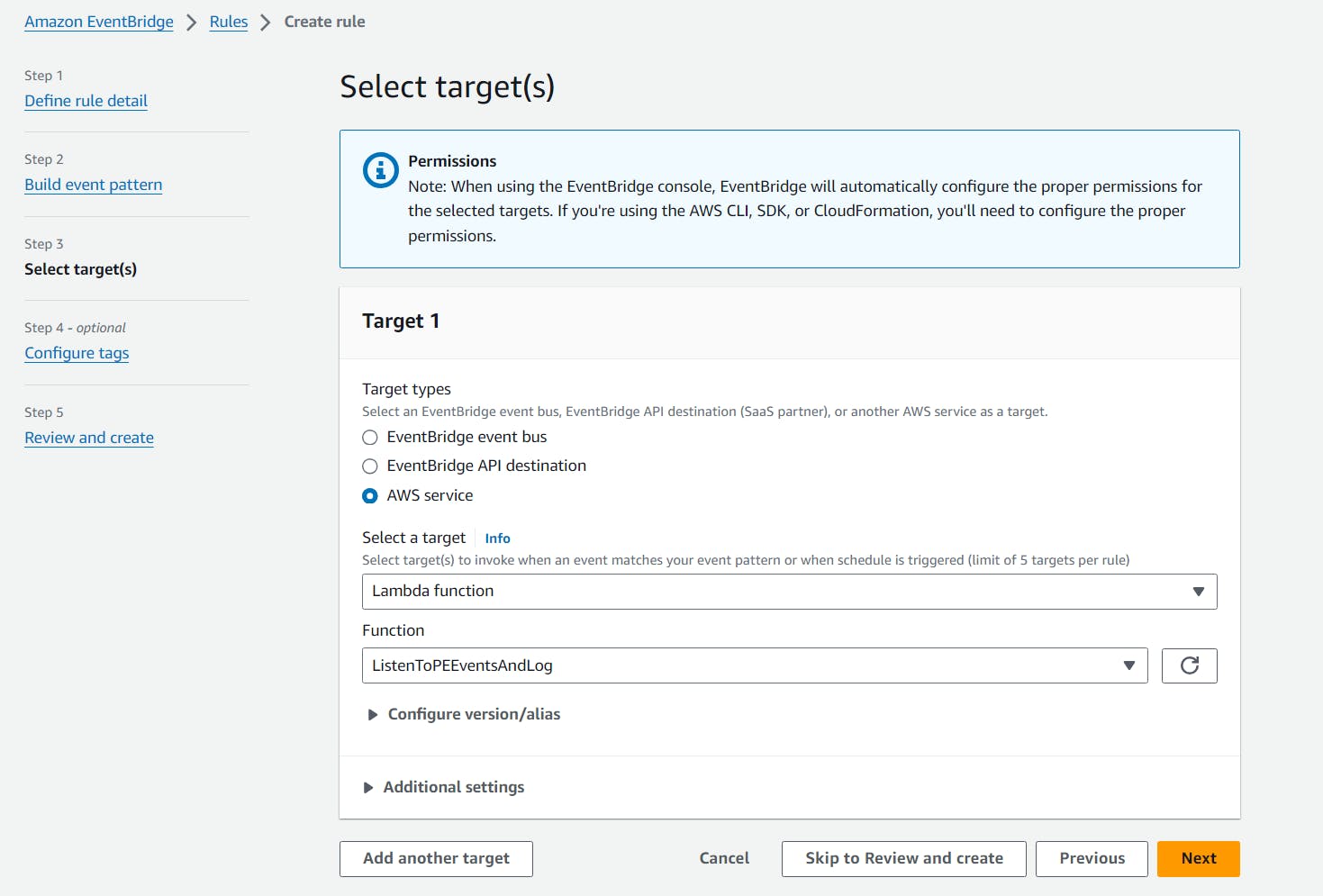
You are now all setup. Now when we trigger Platform event in Salesforce, based on Amazon AppFlow configuration, it will listen to the event, pass the event to EventBridge and based on the rule it should invoke the AWS Lambda function. For now it should just log the event in our logs.

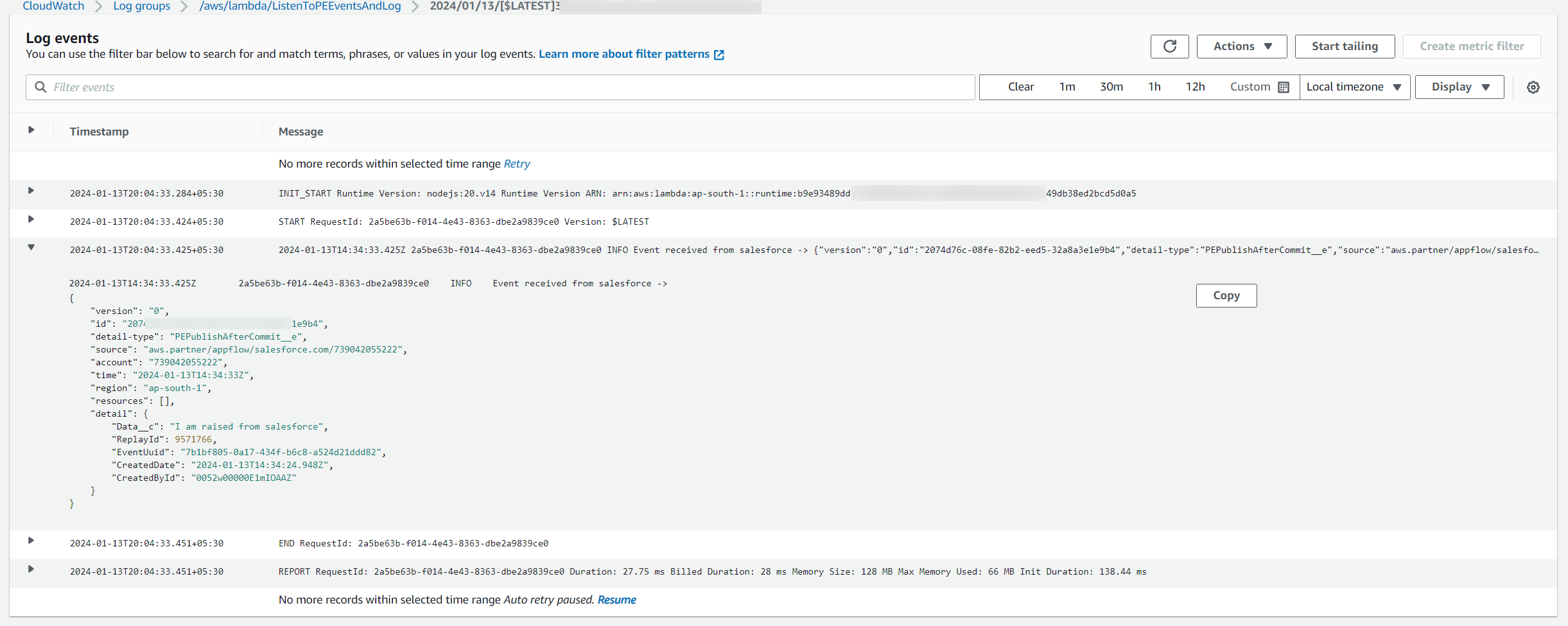
Conclusion
This article discusses the integration of Amazon AppFlow and Salesforce Platform Events, as well as the enhancement of this integration with AWS Lambda functions and EventBridge. It covers the basics of these tools, the benefits of their integration, including real-time data syncing, enhanced data security, scalability, efficiency, and improved customer experience, and the additional advantages brought about by extending the integration to include AWS Lambda and EventBridge. The article also provides a step-by-step guide on implementing this powerful integration, which allows for automated data processing, enhanced customization, cost-effectiveness, and simplified workflow management.

